
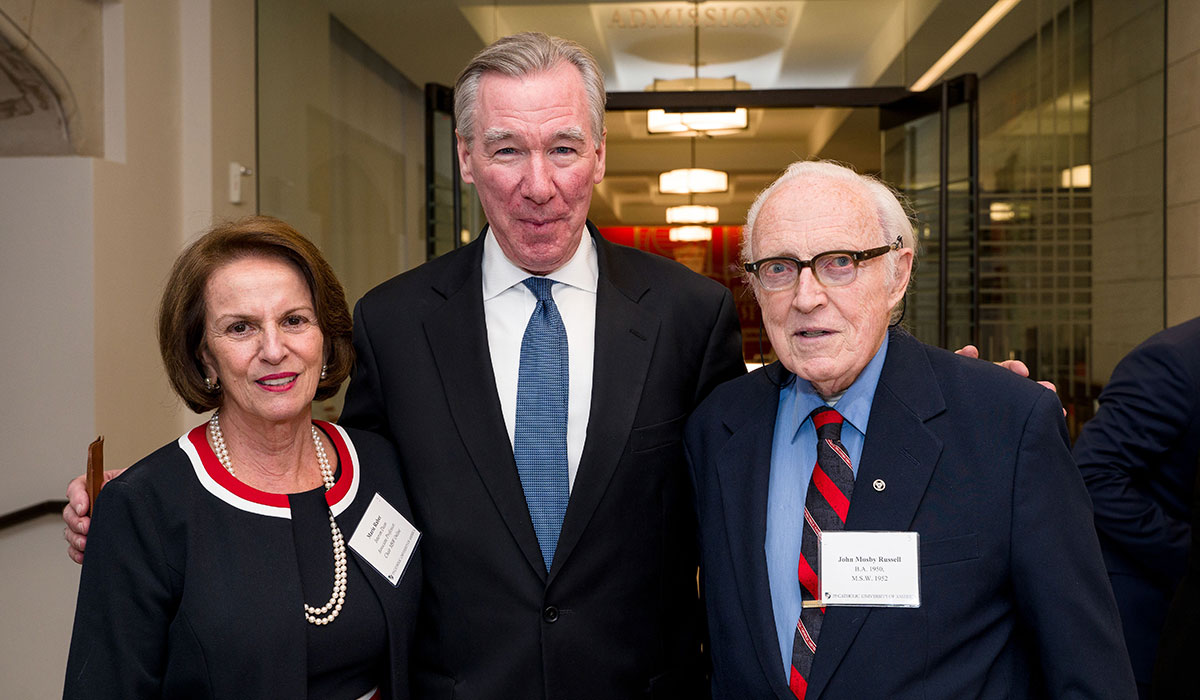
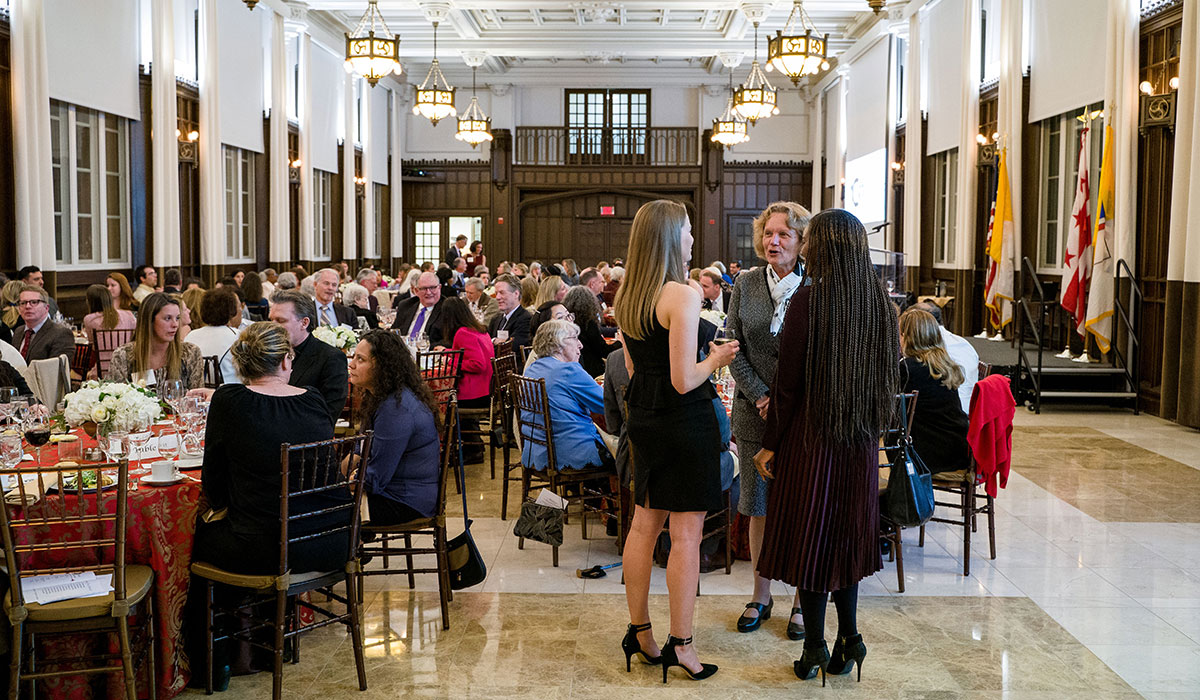
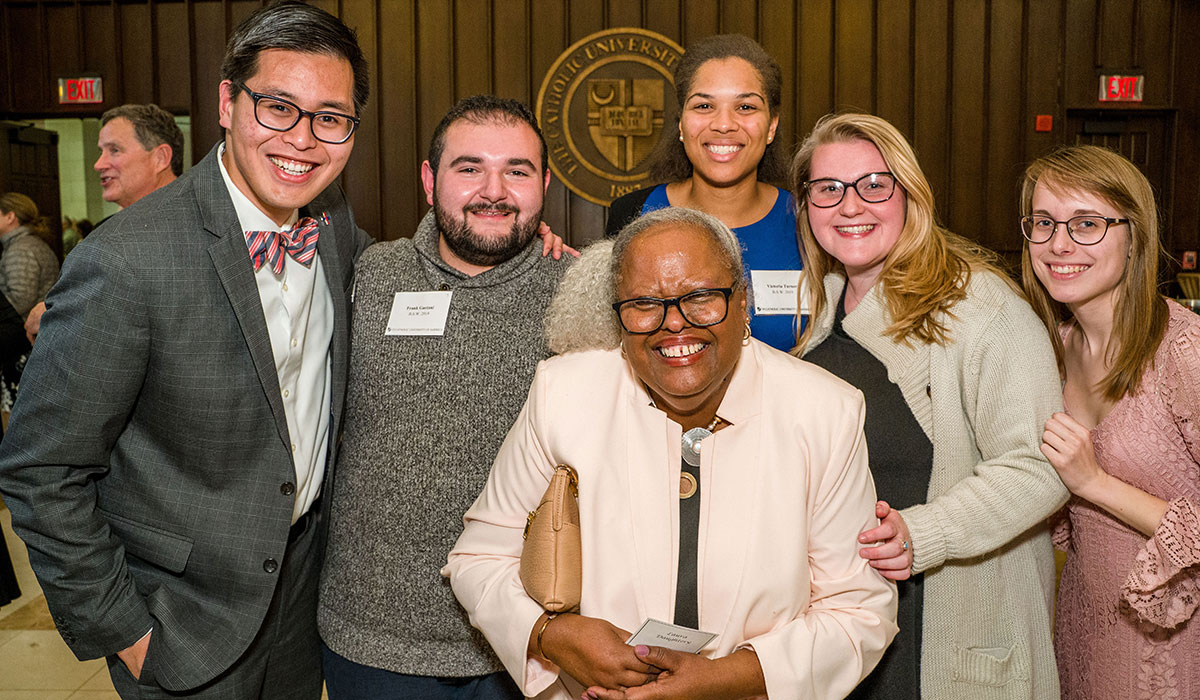
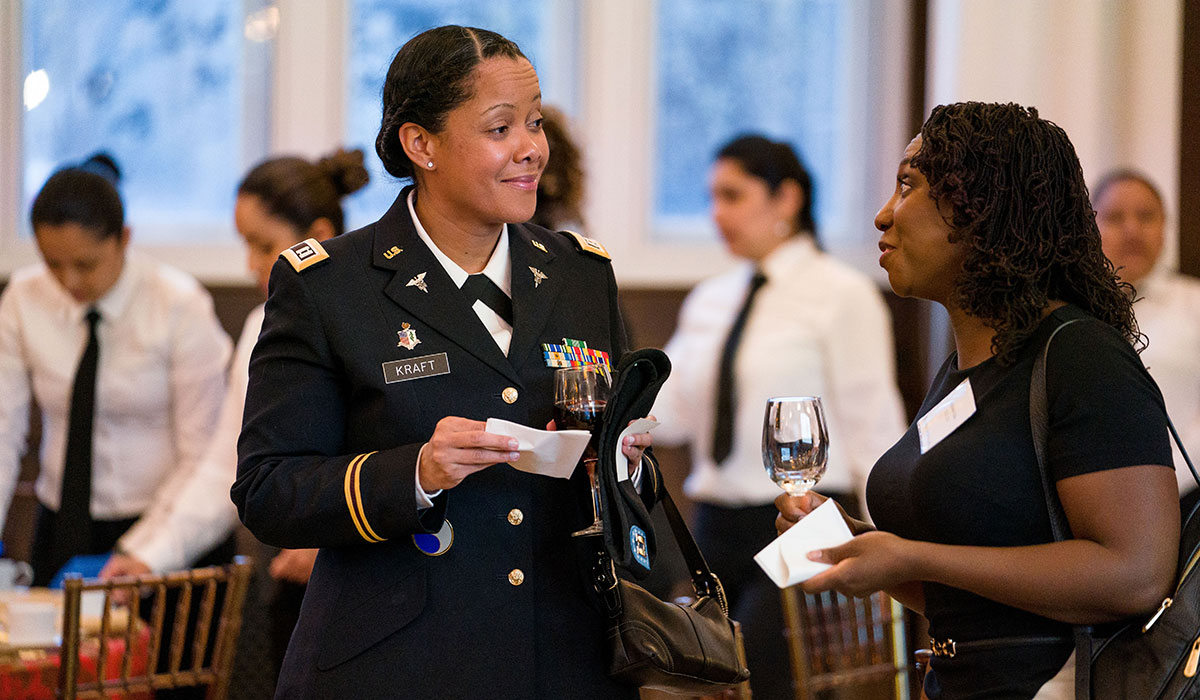
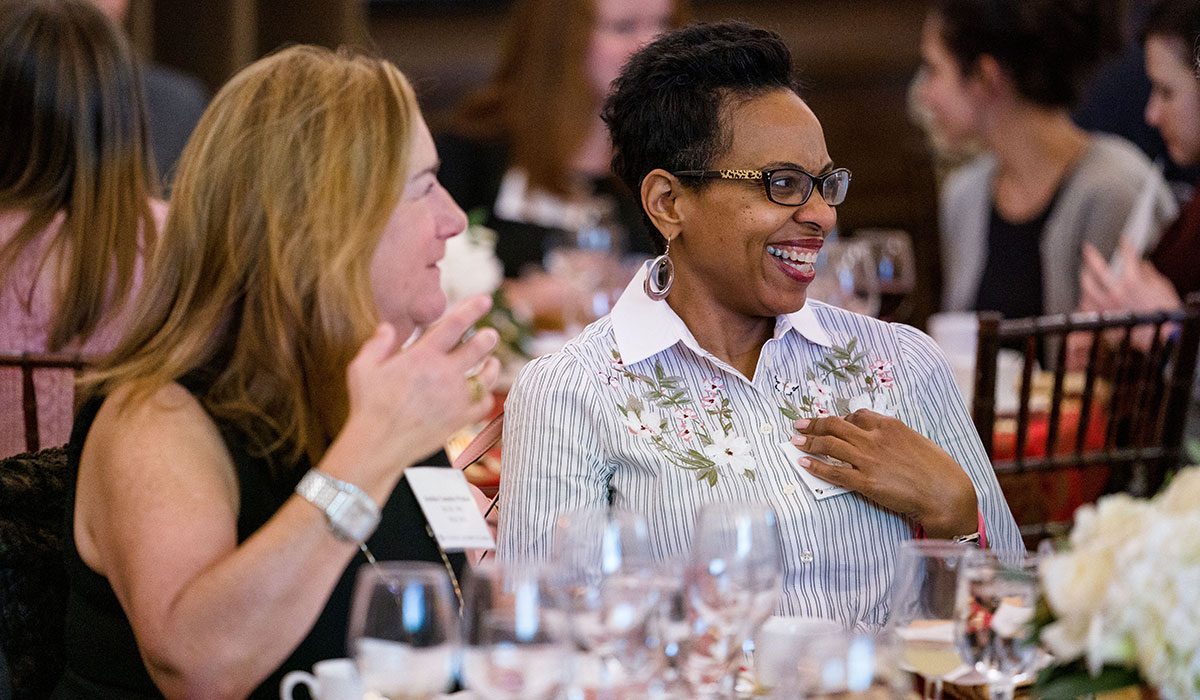
Students, faculty, staff, and alumni of the National Catholic School of Social Service (NCSSS) marked the school’s 100th anniversary with an evening of celebration last month. The night began with a Mass in the University’s St. Vincent Chapel in commemoration of the Feast of St. Louise de Marillac, the patron saint of social workers.
During his homily, celebrant Monsignor John Enzler, president and CEO of Catholic Charities DC, reflected on what life was like a century ago. At that time, he said, the median salary was $1,000 a year, a house could be purchased for $3,000, and NCSSS was founded with a simple principle at its core: “We take care of people in need, we help people go from poverty, from wherever they are, to success.”
Ever since those early days, Monsignor Enzler continued, students have been coming to NCSSS “to train, to learn, and to be imbued with a sense of giving back. They are coming here saying, ‘I’m here to give, I’m here to help, I’m here to make a difference.’”
Following the Mass, members of the NCSSS community gathered in Heritage Hall for a gala dinner celebrating notable alumni and school supporters. Linda Plitt Donaldson, associate professor, served as the emcee for the dinner, and spoke about the school’s “great legacy of social work education, research, and leadership.”
The school was created, she noted, by the National Catholic War Council (which later became the U.S. Conference of Catholic Bishops), as a way for Catholic women to respond to the violence of World War I. Initially, the school — which was founded as the independent National Service School for Women in 1918 before becoming officially incorporated into the University in 1947 — trained graduates to work in the United States and abroad, to support returning soldiers and their families as well as newly arriving refugees, immigrants, and their families.
Since then, Donaldson continued, the school’s alumni have “had an impact on nearly every social problem that touches human lives,” including poverty, addiction, family violence, chronic disease, mental illness, and human trafficking.
“We have made a demonstrated and meaningful impact on so many lives, particularly as our faith tradition calls us to, for people who are the most vulnerable, the most oppressed, and marginalized in our society,” Donaldson said.
Interim Dean Marie Raber reflected on her 31 years working for NCSSS and noted that throughout the history of the school, it has always faced challenges and adversities.
“What helped us prevail was our faculty, our administrators, and our partnership with the University,” Raber said. “So now we go forward and we celebrate tonight this 100 years.”
During his remarks, University President John Garvey congratulated NCSSS for “100 years of modeling our mission of academic excellence in service to the Church and the world.”
Garvey related the concept of Catholic social work to the work of St. Benedict of Nursia, whose rule focused on “the importance of work in the Christian life.”
“Social workers know, perhaps better than anyone, that there is always more work to be done in service of a cause or community we care about,” Garvey said. “In 100 years, NCSSS has responded to countless crises in the Church and the world, but they are not the motive force behind her efforts. Rather, she is inspired by the vision of doing her work well and bringing goodness to the lives of others by doing it.”
Among the many NCSSS alumni and supporters present at the celebration was Ryan Hanlon, who earned his Ph.D. from NCSSS in 2018 and now works at the National Council for Adoption.
“This school has a very rich history so it’s nice to reflect upon that and let others know about the accomplishments we’ve had,” Hanlon said. “I think this sets a course for the future.”
Zalika Pierce, who earned her M.S.W. in social work in 2018, said she was excited to come back and reconnect with her fellow social workers. Pierce currently works as a pregnancy and family support counselor at the Barker Adoption Foundation.
“100 years is monumental, and that is wonderful,” Pierce said. “Social work is so important and this night just validates the work that we do and shows that it should be celebrated.”